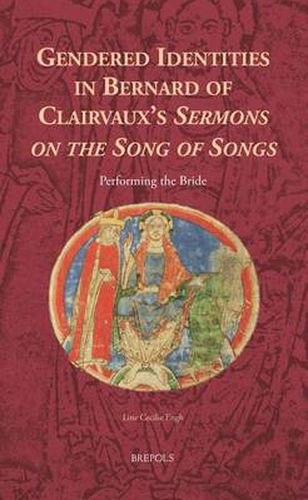Readings Newsletter
Become a Readings Member to make your shopping experience even easier.
Sign in or sign up for free!
You’re not far away from qualifying for FREE standard shipping within Australia
You’ve qualified for FREE standard shipping within Australia
The cart is loading…






In this analysis of Bernard of Clairvaux’s famous Sermons on the Song of Songs, gendered imagery is treated, for the first time, as an interpretative key. Through close readings of Bernard’s text and through the rich array of recent medieval studies on sex and gender, this book challenges familiar interpretations of body, gender, and asceticism, disrupting the commonplace view of medieval monasticism as desexualized and un-gendered. Bernard not only interprets, but also embodies or actualizes the figure of the bride, generating images of celibacy as erotic pleasure and monks as fecund and female. Through his performance, Bernard provides a hermeneutical model on which he patterns himself and his audience, the Cistercian choir monk. By analyzing the rhetorical functions of Bernard’s female self-representation, the author explores how complex and varied female images in the text are absorbed into the bridal role - lactating mother, ecstatic virgin, weeping widow, needy girl. By appropriating femaleness, Bernard transformed the Cistercian cloister into an inverted world that anticipated eschatological restoration and salvation. In this parallel monastic reality, the book argues, males performed all parts while gender hierarchy was upheld to establish notions of superior and inferior, worldly and heavenly, humility and sublimity. The male-female duality in this language is not one of equality, but was rather forged into a hermeneutical hierarchy in which, ultimately, a fully Christomimetic man both appropriates and negates femaleness.
$9.00 standard shipping within Australia
FREE standard shipping within Australia for orders over $100.00
Express & International shipping calculated at checkout
Stock availability can be subject to change without notice. We recommend calling the shop or contacting our online team to check availability of low stock items. Please see our Shopping Online page for more details.
In this analysis of Bernard of Clairvaux’s famous Sermons on the Song of Songs, gendered imagery is treated, for the first time, as an interpretative key. Through close readings of Bernard’s text and through the rich array of recent medieval studies on sex and gender, this book challenges familiar interpretations of body, gender, and asceticism, disrupting the commonplace view of medieval monasticism as desexualized and un-gendered. Bernard not only interprets, but also embodies or actualizes the figure of the bride, generating images of celibacy as erotic pleasure and monks as fecund and female. Through his performance, Bernard provides a hermeneutical model on which he patterns himself and his audience, the Cistercian choir monk. By analyzing the rhetorical functions of Bernard’s female self-representation, the author explores how complex and varied female images in the text are absorbed into the bridal role - lactating mother, ecstatic virgin, weeping widow, needy girl. By appropriating femaleness, Bernard transformed the Cistercian cloister into an inverted world that anticipated eschatological restoration and salvation. In this parallel monastic reality, the book argues, males performed all parts while gender hierarchy was upheld to establish notions of superior and inferior, worldly and heavenly, humility and sublimity. The male-female duality in this language is not one of equality, but was rather forged into a hermeneutical hierarchy in which, ultimately, a fully Christomimetic man both appropriates and negates femaleness.